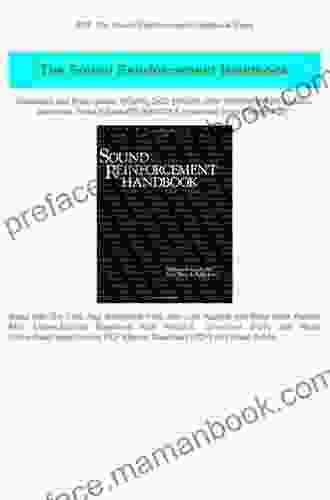Emotional Intelligence: How Feelings Shape Our Thinking

Emotions are a powerful force in our lives. They can motivate us, drive us, and help us connect with others. But emotions can also be disruptive, and they can lead to poor decision-making.
4.5 out of 5
| Language | : | English |
| File size | : | 1544 KB |
| Text-to-Speech | : | Enabled |
| Screen Reader | : | Supported |
| Enhanced typesetting | : | Enabled |
| X-Ray | : | Enabled |
| Word Wise | : | Enabled |
| Print length | : | 273 pages |
Emotional intelligence is the ability to understand and manage our emotions in a healthy and productive way. People with high emotional intelligence are able to identify their own emotions and the emotions of others, and they are able to use this information to make better decisions and build stronger relationships.
How Emotions Work
Emotions are complex reactions that involve our thoughts, feelings, and behaviors. They are triggered by events in our environment and by our own thoughts and beliefs. When we experience an emotion, our bodies go through a series of physiological changes, such as increased heart rate, sweating, and muscle tension. These changes can prepare us for action, such as fighting or fleeing.
Emotions can also affect our thinking. When we are experiencing strong emotions, it can be difficult to think clearly and make rational decisions. This is because emotions can hijack our brains and override our rational thinking.
The Benefits of Emotional Intelligence
People with high emotional intelligence are able to reap a number of benefits, including:
- Improved decision-making
- Stronger relationships
- Increased productivity
- Reduced stress
- Improved mental health
How to Develop Emotional Intelligence
Emotional intelligence is a skill that can be learned and developed. Here are a few tips for developing your emotional intelligence:
- Identify your emotions. The first step to managing your emotions is to be able to identify them. Pay attention to your thoughts, feelings, and behaviors, and try to label the emotions that you are experiencing.
- Understand your triggers. Once you are able to identify your emotions, you can start to understand what triggers them. This information can help you to avoid or manage situations that are likely to trigger negative emotions.
- Manage your emotions. Once you understand your emotions and triggers, you can start to manage them in a healthy way. There are a number of techniques that can help you to manage your emotions, such as relaxation techniques, exercise, and journaling.
- Build relationships. One of the best ways to develop your emotional intelligence is to build relationships with others. When you interact with others, you can learn about different perspectives and emotions, and you can develop your empathy skills.
Emotional intelligence is a valuable skill that can help you to live a more fulfilling and successful life. By developing your emotional intelligence, you can improve your decision-making, build stronger relationships, and reduce stress.
4.5 out of 5
| Language | : | English |
| File size | : | 1544 KB |
| Text-to-Speech | : | Enabled |
| Screen Reader | : | Supported |
| Enhanced typesetting | : | Enabled |
| X-Ray | : | Enabled |
| Word Wise | : | Enabled |
| Print length | : | 273 pages |
Do you want to contribute by writing guest posts on this blog?
Please contact us and send us a resume of previous articles that you have written.
 Top Book
Top Book Novel
Novel Fiction
Fiction Nonfiction
Nonfiction Literature
Literature Paperback
Paperback Hardcover
Hardcover E-book
E-book Audiobook
Audiobook Bestseller
Bestseller Classic
Classic Mystery
Mystery Thriller
Thriller Romance
Romance Fantasy
Fantasy Science Fiction
Science Fiction Biography
Biography Memoir
Memoir Autobiography
Autobiography Poetry
Poetry Drama
Drama Historical Fiction
Historical Fiction Self-help
Self-help Young Adult
Young Adult Childrens Books
Childrens Books Graphic Novel
Graphic Novel Anthology
Anthology Series
Series Encyclopedia
Encyclopedia Reference
Reference Guidebook
Guidebook Textbook
Textbook Workbook
Workbook Journal
Journal Diary
Diary Manuscript
Manuscript Folio
Folio Pulp Fiction
Pulp Fiction Short Stories
Short Stories Fairy Tales
Fairy Tales Fables
Fables Mythology
Mythology Philosophy
Philosophy Religion
Religion Spirituality
Spirituality Essays
Essays Critique
Critique Commentary
Commentary Glossary
Glossary Bibliography
Bibliography Index
Index Table of Contents
Table of Contents Preface
Preface Introduction
Introduction Foreword
Foreword Afterword
Afterword Appendices
Appendices Annotations
Annotations Footnotes
Footnotes Epilogue
Epilogue Prologue
Prologue Phil Zabriskie
Phil Zabriskie Tessa Bailey
Tessa Bailey Jaishree Sharad
Jaishree Sharad A Lee Martinez
A Lee Martinez J R Rain
J R Rain A Latham
A Latham Dani Rodrik
Dani Rodrik Flynn Berry
Flynn Berry Hernan Jaramillo Angel
Hernan Jaramillo Angel Aimee Phan
Aimee Phan Julie M Hauer
Julie M Hauer Tae Keller
Tae Keller Alex Petrov
Alex Petrov David C Korten
David C Korten A Leroy
A Leroy Claire Potter
Claire Potter Natalie Keller Reinert
Natalie Keller Reinert Cheryle R Hart
Cheryle R Hart Alan Schmidt
Alan Schmidt Jenna Nelson
Jenna Nelson
Light bulbAdvertise smarter! Our strategic ad space ensures maximum exposure. Reserve your spot today!

 Nikolai GogolSteve and the Lost Diamond Red Mining Novel: A Captivating Literary Adventure...
Nikolai GogolSteve and the Lost Diamond Red Mining Novel: A Captivating Literary Adventure...
 George R.R. MartinOff Grid Solar Power: How To Design And Install A Mobile Solar System For RVs...
George R.R. MartinOff Grid Solar Power: How To Design And Install A Mobile Solar System For RVs... J.R.R. TolkienFollow ·6.2k
J.R.R. TolkienFollow ·6.2k Raymond ParkerFollow ·16.1k
Raymond ParkerFollow ·16.1k Earl WilliamsFollow ·8.4k
Earl WilliamsFollow ·8.4k David BaldacciFollow ·8.5k
David BaldacciFollow ·8.5k Garrett PowellFollow ·12.4k
Garrett PowellFollow ·12.4k Edgar Allan PoeFollow ·18.1k
Edgar Allan PoeFollow ·18.1k Easton PowellFollow ·3.7k
Easton PowellFollow ·3.7k Eli BrooksFollow ·9.3k
Eli BrooksFollow ·9.3k

 Vincent Mitchell
Vincent MitchellUnveiling the Enchanting Tale of Plant Reproduction: A...
Plants, the silent yet vibrant...

 Sam Carter
Sam CarterDelve into the Enigmatic World of "Relative Murder: A...
In the realm of mystery and suspense, the...

 Richard Simmons
Richard SimmonsThe Sound Reinforcement Handbook: A Comprehensive Guide...
In the realm of live sound engineering, The...

 Leo Tolstoy
Leo TolstoyEnter the New Era of Cyberwar: Unmasking the Kremlin's...
`` Prologue: The Digital...

 Brenton Cox
Brenton CoxFirst Lessons Ukulele Bridget Baker: A Comprehensive...
Embarking on a musical journey with the...
4.5 out of 5
| Language | : | English |
| File size | : | 1544 KB |
| Text-to-Speech | : | Enabled |
| Screen Reader | : | Supported |
| Enhanced typesetting | : | Enabled |
| X-Ray | : | Enabled |
| Word Wise | : | Enabled |
| Print length | : | 273 pages |










